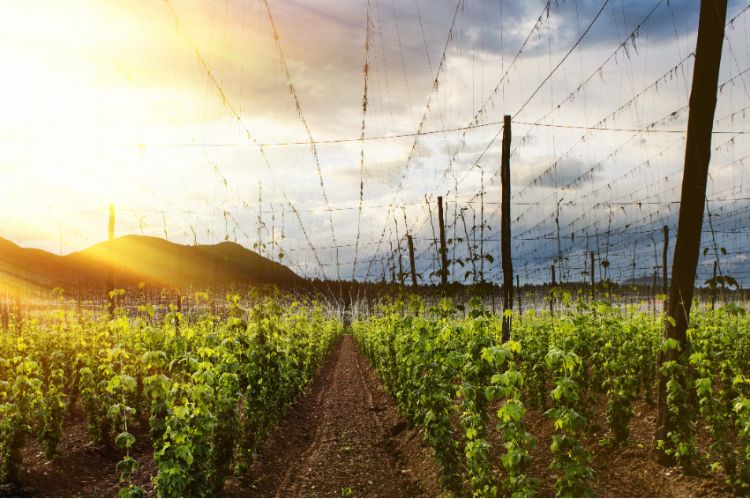Walk through a barley field in Alsace, a hop garden in Bohemia or a malting plant in Flanders and you’ll see the roots of one of Europe’s oldest and most cherished value chains: beer brewing.
Beer is more than a drink. It is a mainstay of Europe’s agrifood culture and economy, tightly connected with the livelihoods of farmers, suppliers and small businesses across the continent. As EU policymakers reflect on the future of agriculture, food security, and rural development, it’s time to give brewing its rightful place at the policy table.
Every beer begins in a field. Brewing depends on the steady supply of high-quality agricultural ingredients: barley and wheat from European plains; hops from specialised regions in Germany, the Czech Republic, Poland and Slovenia; and local water, our most vital ingredient. The yeast may be microscopic, but the economic footprint is anything but.
Our sector adds billions in value to the EU economy each year, generates significant tax revenue, and fuels exports that showcase Europe’s traditions and innovation abroad.
Brewers are not just buyers and producers. They are long-term partners in a living value chain. Europe’s ten thousand breweries work hand-in-hand with farmers to grow the best ingredients, develop sustainable practices, support biodiversity and promote soil health. The grain-to-glass journey doesn’t end in the brewery. It continues through logistics, packaging, hospitality and retail - supporting millions of local jobs, often in rural areas.
In fact, the brewing sector is one of Europe’s most visible and impactful connectors between farming and the consumer economy. Our sector adds billions in value to the EU economy each year, generates significant tax revenue, and fuels exports that showcase Europe’s traditions and innovation abroad. Crucially, every euro earned by brewers circulates through a vast supply network that includes family farms, cooperatives, malthouses, and cutting-edge innovators.
 Every beer begins in a field. Brewing depends on the steady supply of high-quality agricultural ingredients
Every beer begins in a field. Brewing depends on the steady supply of high-quality agricultural ingredients
This symbiosis needs recognition and support. As the EU implements its strategic visions for the Single Market, food systems and competitiveness, brewers must be seen not just as manufacturers, but as drivers of agrifood resilience and rural vitality. The EU should take account of our strategic role as beverage producers when it enacts its goals of the Vision for Agriculture and Food, the Competitiveness Compass, and the Single Market Strategy.
I am delighted the European Beer Group in the Parliament also recognises the role of brewers in the agrifood chain. Jointly headed by two dynamic MEPs, Tomáš Zdechovský and Hannes Heide, the EBG launched the Grain to Glass initiative in July to firstly showcase the agricultural origins of beer. One of the first events was an MEP field trip in early September to the hop harvest that was just a short drive from the European Parliament’s seat in Strasbourg, in partnership with Hop France and Interhoublon.
The beer in your hand is not just a symbol of conviviality. It’s a product of cooperation, craft and commitment from Grain to Glass.
These initiatives matter. Whilst the cereals used by brewers are stored in vast silos, too often policy is also made in silos. But brewing is a case study in joined-up thinking: a sector where agriculture, manufacturing, sustainability, culture and communities intersect. Whether it’s precision farming for malting barley and hop varieties or innovations in yeast, water reuse and energy efficiency, we are advancing both environmental goals and economic growth.
Europe has always taken pride in its brewing heritage. It should now take equal pride in what that heritage contributes to the present and future of the agrifood system. The beer in your hand is not just a symbol of conviviality. It’s a product of cooperation, craft and commitment from Grain to Glass.
It’s time for EU policy to raise a beer to that.
Sign up to The Parliament's weekly newsletter
Every Friday our editorial team goes behind the headlines to offer insight and analysis on the key stories driving the EU agenda. Subscribe for free here.